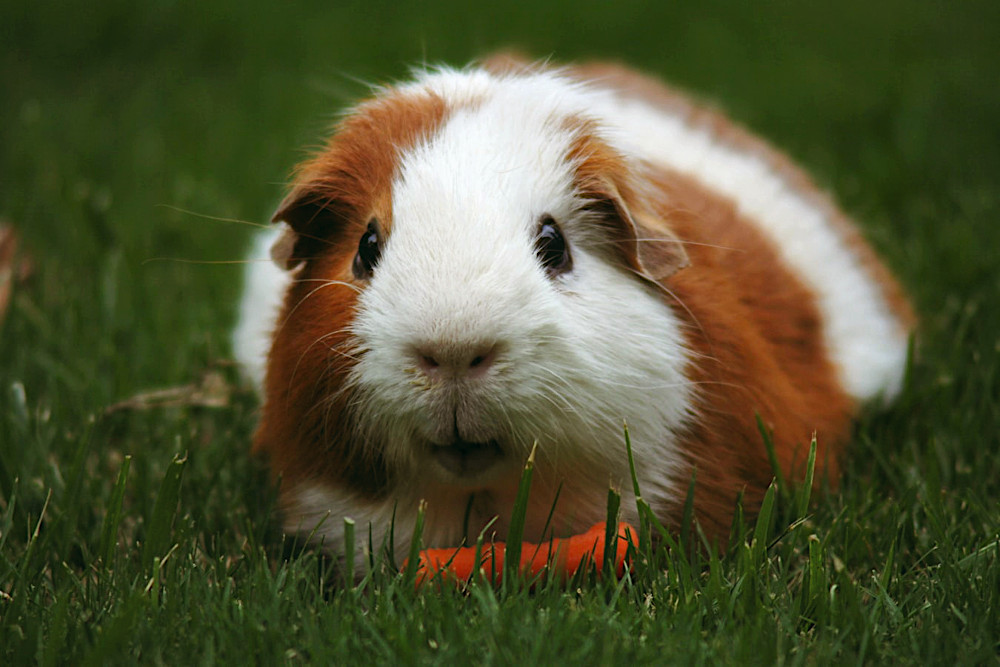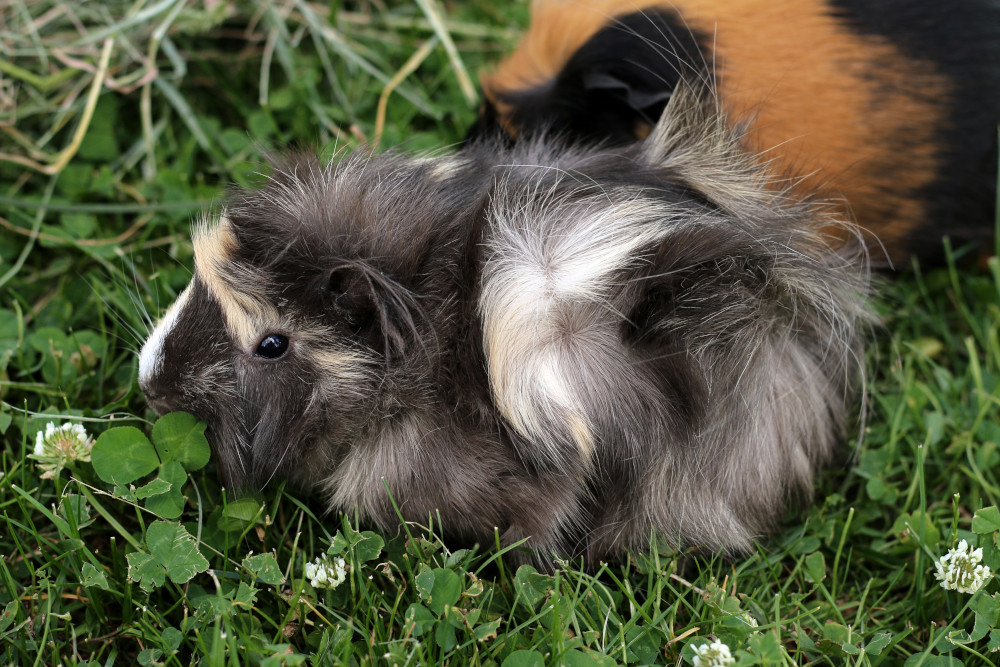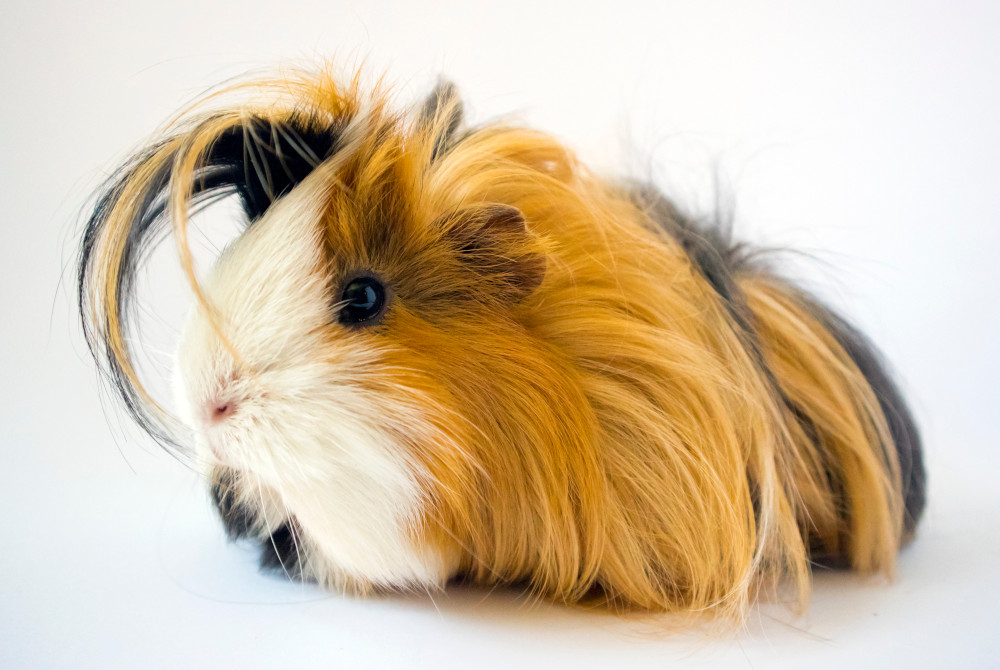Guinea pigs are very clever; they can comprehend and learn things, they have excellent memory, and they have many appealing qualities. They’re small, gentle, and personable, and constantly entertaining as they go about their day. They make great pets for responsible children, as they rarely bite or scratch unless scared or hurt. They make ideal companions for those who live in an apartment and can’t make some of the commitment that come with larger pets. They can be nervous animals and will sometimes run away from you, even if they’re used to being picked up. They tolerate being picked up but are unlikely to enjoy it as much as some other small companion animals such as rats or ferrets.
The most common reasons for keeping guinea pigs are for their company, as a hobby (showing), and for relaxation. There are, however, some things you need to think about before you bring some little guinea pigs home.
What sort of guinea pig do I want?
There are many different breeds of guinea pigs. Some, with long hair, need daily grooming and brushing; others need no brushing and only washing if they get dirty. What characteristics fit in with your lifestyle and plans? The key to knowing the answer is research. Read up on the guinea pigs you are interested in, ask other people about them, talk to breeders, guinea pig vets, rescue groups, visit online forums, and so on.
Three primary types of guinea pigs are recognised: Short-coated, rough-coated, and long-coated, distinguished by the length, texture, and direction of their hair growth.

Short-coated guinea pigs have uniformly short, straight hair.

Rough-coated guinea pigs have short, coarse hair arranged in whorls or rosettes, which gives them an untidy appearance.

Long-coated guinea pigs have long, fine, silky hair.
Guinea pigs may be monocoloured, bicoloured, or tricoloured. These colours include Himalayan, Self, Tortoiseshell, Agouti, Brindle, Dutch, Magpie, Dalmatian, Roan, Harlequin.
Should I get one guinea pig or two (or more)?
Guinea pigs have evolved as communal animals, living in small herds that provide greater and better opportunities for feeding, protection against predators, and a rich social life. So, it stands to reason that a guinea pig living a solitary life is an evolutionary aberration. Preventing a solitary guinea pig from becoming lonely and bored is a tall order, even for someone committed to spending a significant amount of time with their animal every day.
Guinea pigs might enjoy human company but it’s no substitute for having other guinea pig friends. They have different needs to us and their own ways of communicating – imagine how lonely you’d feel if you lived in a house full of guinea pigs without any people to talk to.
So, wherever possible, guinea pigs should have at least one other guinea pig as a companion.
What sort of commitment do I need to make?
Like all companion animals, guinea pigs require special care and attention. Here are some important questions to consider before adopting a guinea pig:
How much time do you have?
- Guinea pigs need time out of their enclosure every day. Whether this time is spent stretching their legs and exploring new environments or cuddling in your lap, daily interaction and attention are essential for a guinea pig’s wellbeing.
- They need to be groomed regularly. Short-haired breeds can be maintained with a once-a-week brushing while long-haired breeds require daily grooming.
- Guinea pigs’ enclosures should be thoroughly cleaned on a weekly basis and spot-cleaned every few days. If you don’t enjoy the smell of a dirty enclosure, consider how your guinea pigs—who spend nearly all of their waking hours just inches above their bedding—feels about stinky living quarters!
Are you getting these guinea pigs for your children?
If you’re getting guinea pigs for your child, consider how these animals’ care will fit into your family’s schedule.
- Can your child incorporate pet care into a busy after-school schedule and evening and weekend commitments?
- Are you willing to shoulder responsibility for your guinea pigs’ care if your children drop the ball? (and remember, even if your children are given responsibility for looking after the guinea pigs, at the end of the day you’re still responsible for them, including legally)
- If you have other pets, how will you ensure your guinea pigs will get enough attention?
What are you doing over the next 5-7 years?
Guinea pigs live an average of five to seven years. This lifespan is longer than many other small pets such as mice or rats, who only live up to a few years. If your life is in transition, a guinea pig may be more portable than a dog or a cat, but five years or more is still a significant period for which you will need to commit to providing for the needs of your guinea pigs.
So, if you are looking for these qualities in a companion pet, and you can make the commitment they need and deserve, guinea pigs may be the right pet for you.
Reference
RSPCA (UK) Keeping guinea pigs as pets. Accessed 15 May 2023.
